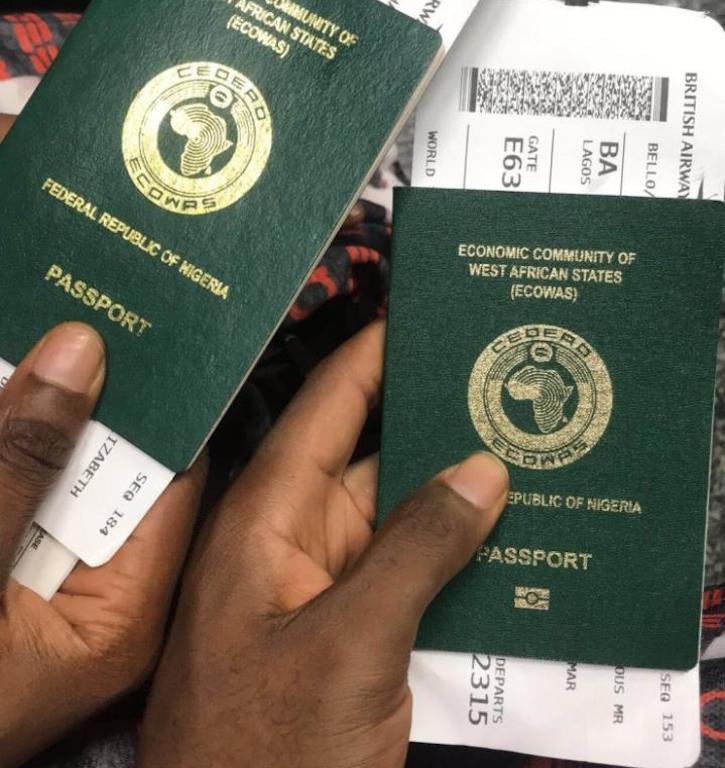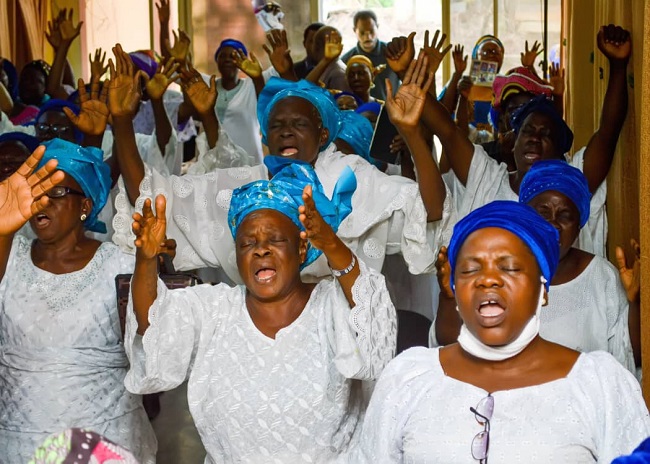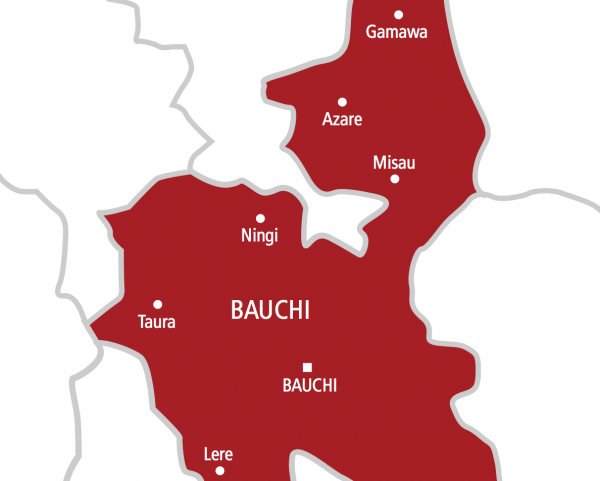Christmas dreams in Cotonou and the “japa” syndrome, By Babafemi A. Badejo

We have been precious neighbors with Mr. Rufus and Mrs. Esther Sami, but recently the cold hands of death snatched away the kind and supportive Mrs. Sami on October 9th. I was only able to attend Mrs. Sami's funeral at Imaka, Ijebu-Ode, Nigeria from 25-26 November. Imaka is next to Imagbon, where the Ijebu people valiantly fought the British in 1892. The Ijebu tried to resist British colonization but lost. A few months later, the same year, the Fon (a major ethnic group in the Republic of Benin), fought the French a second time at Adegon, near Cotonou, thinking they could stop the incursion of Europeans into their lands, but they also lost , despite the bravery of a regiment entirely composed of women; a special race known as "Mino" (our mothers) who constituted a third of the Fon fighting forces.
The French and other Europeans recognized the gallantry of these women whom they nicknamed Amazons, borrowing a name from Greek mythology. These brave women fighters had shown their strength by fighting and conquering other ethnic groups in their neighborhood.
I was shocked when my third year students laughed at me when I told them that the Ijebu people had fought the British valiantly and could have won had it not been for the maxim guns that the British had developed and some Yoruba betrayals. Sad that the teaching of history has been wiped out by Nigerian deceivers thus depriving our children of so many things that could boost their confidence to function better in today's world. If my students didn't know about the Magbon war, I wonder how many Africans know about Abomey/Dahomey Mino. I heard that Hollywood is interested in the courage of these women. I also read that Lupita N'yongo interviewed the last Amazon many years ago. She has since died, leaving Lupita and others to tell more about the role of these women in trying to save their part of Africa from direct European control.
Of course, since this domination, the Europeans have not given up on keeping the Africans in the position of producing permanently for their comfort.
An important part of Mrs Sami's funeral, for me, was the sermon or homily delivered by Rt. Rev. Dr. Peter Rotimi Oludipe of the Ijebu Diocese of the Nigerian Anglican Communion. Apart from pleas to live a dignified life, etc., he touched on a persistent problem in Africa (especially among Yoruba children), regarding the "japa" syndrome (the emigration of our best brains) nowadays . He pointed out that we had invested so much in our children to get a Western education to become doctors, engineers, financial gurus, etc., only for them to leave our shores to meet the labor shortages of the West, rather than to develop our lands.
The Bishop emphasized that every Yoruba parent prays that his offspring will achieve more than himself. He wondered how this could happen with the lack of development in Imaka, noting that out of necessity the people of Imaka have to accept their children moving on, but they should urge them to look back and do remittances to repair the Church and the Vicarage, both of which he felt needed improvement.
It is true that our children can only look for work in the big cities of Lagos, Abuja, Port Harcourt etc., and these days, in London, Washington, Ottawa, Berlin, Brisbane, Singapore, Johannesburg , etc. As we celebrate remittances, we are being recolonized as our best brains leave for the bondage involved in the brain drain that develops other lands.

For me, in his sermon, the Bishop left the blame for Nigeria's leadership deficit, from local, state and federal levels, to the japa syndrome. Good governance and less theft could have made Imaka about a 10-15 minute train ride to the heart of Lagos, and about two hours or so from Abuja and Port Harcourt etc. And with constant electricity, there will be no need to relocate to the outskirts of Lagos for Imaka's sons and daughters who spend four to six hours a day of work exhausting or "killing people softly", Lagos traffic.


We have been precious neighbors with Mr. Rufus and Mrs. Esther Sami, but recently the cold hands of death snatched away the kind and supportive Mrs. Sami on October 9th. I was only able to attend Mrs. Sami's funeral at Imaka, Ijebu-Ode, Nigeria from 25-26 November. Imaka is next to Imagbon, where the Ijebu people valiantly fought the British in 1892. The Ijebu tried to resist British colonization but lost. A few months later, the same year, the Fon (a major ethnic group in the Republic of Benin), fought the French a second time at Adegon, near Cotonou, thinking they could stop the incursion of Europeans into their lands, but they also lost , despite the bravery of a regiment entirely composed of women; a special race known as "Mino" (our mothers) who constituted a third of the Fon fighting forces.
The French and other Europeans recognized the gallantry of these women whom they nicknamed Amazons, borrowing a name from Greek mythology. These brave women fighters had shown their strength by fighting and conquering other ethnic groups in their neighborhood.
I was shocked when my third year students laughed at me when I told them that the Ijebu people had fought the British valiantly and could have won had it not been for the maxim guns that the British had developed and some Yoruba betrayals. Sad that the teaching of history has been wiped out by Nigerian deceivers thus depriving our children of so many things that could boost their confidence to function better in today's world. If my students didn't know about the Magbon war, I wonder how many Africans know about Abomey/Dahomey Mino. I heard that Hollywood is interested in the courage of these women. I also read that Lupita N'yongo interviewed the last Amazon many years ago. She has since died, leaving Lupita and others to tell more about the role of these women in trying to save their part of Africa from direct European control.
Of course, since this domination, the Europeans have not given up on keeping the Africans in the position of producing permanently for their comfort.
An important part of Mrs Sami's funeral, for me, was the sermon or homily delivered by Rt. Rev. Dr. Peter Rotimi Oludipe of the Ijebu Diocese of the Nigerian Anglican Communion. Apart from pleas to live a dignified life, etc., he touched on a persistent problem in Africa (especially among Yoruba children), regarding the "japa" syndrome (the emigration of our best brains) nowadays . He pointed out that we had invested so much in our children to get a Western education to become doctors, engineers, financial gurus, etc., only for them to leave our shores to meet the labor shortages of the West, rather than to develop our lands.
The Bishop emphasized that every Yoruba parent prays that his offspring will achieve more than himself. He wondered how this could happen with the lack of development in Imaka, noting that out of necessity the people of Imaka have to accept their children moving on, but they should urge them to look back and do remittances to repair the Church and the Vicarage, both of which he felt needed improvement.
It is true that our children can only look for work in the big cities of Lagos, Abuja, Port Harcourt etc., and these days, in London, Washington, Ottawa, Berlin, Brisbane, Singapore, Johannesburg , etc. As we celebrate remittances, we are being recolonized as our best brains leave for the bondage involved in the brain drain that develops other lands.

For me, in his sermon, the Bishop left the blame for Nigeria's leadership deficit, from local, state and federal levels, to the japa syndrome. Good governance and less theft could have made Imaka about a 10-15 minute train ride to the heart of Lagos, and about two hours or so from Abuja and Port Harcourt etc. And with constant electricity, there will be no need to relocate to the outskirts of Lagos for Imaka's sons and daughters who spend four to six hours a day of work exhausting or "killing people softly", Lagos traffic.
What's Your Reaction?






















